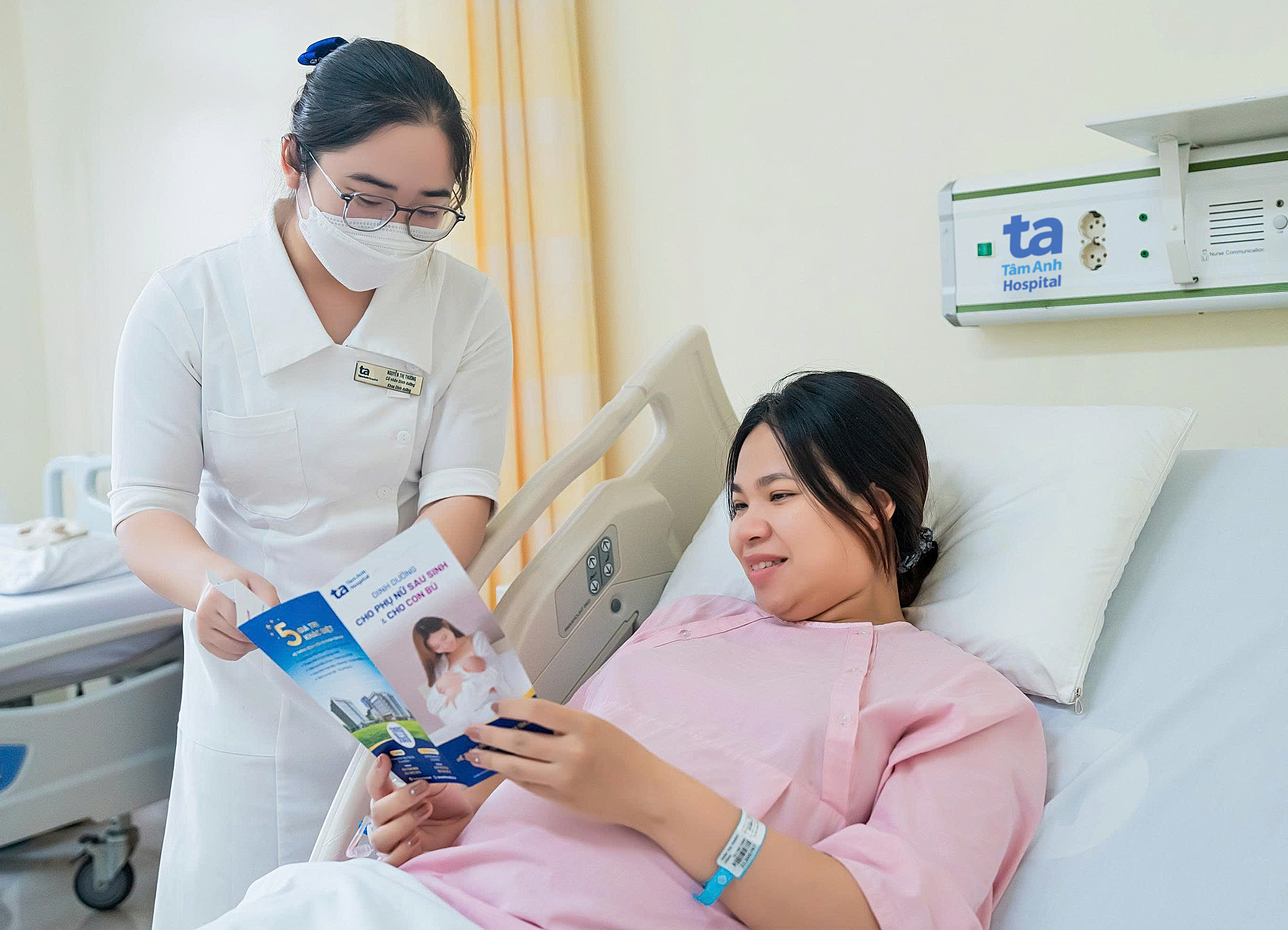Food poisoning occurs when someone ingests contaminated, toxic, spoiled, or improperly preserved food or drinks. Symptoms like fever, vomiting, diarrhea, and abdominal cramps can appear within minutes, hours, or one to two days after consumption.
Mild cases often resolve within 48 hours. Severe cases can lead to bloody diarrhea, dehydration, cardiovascular collapse, septic shock, and even death without prompt treatment. In such instances, digestive issues can progress to neurological complications, including blurred vision, muscle weakness, difficulty swallowing, irregular heartbeat, convulsions, tremors, and pain beyond the abdomen.
Doctor Tran Thi Tra Phuong from the Department of Nutrition and Dietetics at Tam Anh General Hospital in Hanoi, explains that mammary glands synthesize nutrients from the mother's blood to produce milk. In most mild to moderate cases of food poisoning from ordinary food, the microorganisms do not enter breast milk. Mothers can generally continue breastfeeding. Even with some infections, breast milk can still provide beneficial antibodies to the baby. If the mother has a common bacterial infection causing diarrhea, her body produces antibodies against the pathogen and transmits them to the baby through milk, boosting the baby's immunity.
However, if food poisoning escalates to blood poisoning from bacteria in meat, toxic mushrooms, heavy metals, or toxic chemicals like lead, mercury, or pesticides, the toxins can enter the bloodstream and affect milk quality. In these situations, mothers should stop breastfeeding until the level of contamination is determined. Some mothers may require antibiotic treatment. If the mother experiences severe vomiting, diarrhea, and dehydration, leading to weakness and an inability to care for the baby, her milk production might decrease, or the milk quality could be compromised. In such cases, temporarily stopping breastfeeding is recommended to prioritize rest and rehydration.
 |
A nutritionist advises a new mother. Photo illustration: Tam Anh General Hospital in Hanoi
If breastfeeding needs to be paused, Doctor Tra Phuong advises mothers to express and freeze their milk if their health permits. They should also consult their doctor about when to resume breastfeeding. Some medications have short half-lives, requiring only a few hours to a day off breastfeeding. During this period, mothers should stay hydrated by drinking plenty of water, lemon-salt water, fresh coconut water, roasted rice water, or an oral rehydration solution prepared as directed. They should also continue expressing or pumping milk regularly.
To ensure safety for both mother and baby, Doctor Phuong recommends thorough handwashing with soap and water to prevent infection. After experiencing food poisoning, breastfeeding mothers should avoid eating for a few hours. Once vomiting subsides, they can gradually reintroduce easily digestible foods like porridge, soup, dry bread, oatmeal, and soft fruits to ease the burden on the gut. Yogurt can help restore gut flora balance. Spicy, fried, and fatty foods should be avoided.
Self-treating is discouraged. Many anti-diarrheal, pain relief, and antiemetic medications are unsuitable for breastfeeding mothers. Anti-diarrheal drugs can hinder the elimination of toxins from the digestive system. Consulting a doctor for appropriate medication is crucial.
Mothers should seek immediate medical attention if they experience high fever, diarrhea lasting over two days, bloody stools, persistent vomiting, abdominal pain, low blood pressure, irregular heartbeat, difficulty breathing, or watery stools. Keeping a sample of the suspected contaminated food, including label information, and vomit or stool samples can help doctors identify the cause and develop a suitable treatment plan.
Doctor Tra Phuong emphasizes the importance of food safety for breastfeeding women. To prevent food poisoning, mothers should consume cooked food and boiled water, avoiding raw dishes like fish salad, fermented pork roll (nem chua), and blood pudding (tiet canh). They should choose clean, fresh food from reputable sources with quality assurance. For canned and frozen products, attention should be paid to expiration dates and specific storage instructions. Food should not be stored in the refrigerator for extended periods. Expired canned goods or those with bulging or rusting signs should be discarded. Maintaining hygiene, including handwashing before meals, after using the toilet, and after food preparation, is essential. If their hands have any wounds, mothers should wear gloves when handling raw food.
Trinh Mai
| Readers can submit questions about pregnancy and childbirth here for doctors to answer. |












